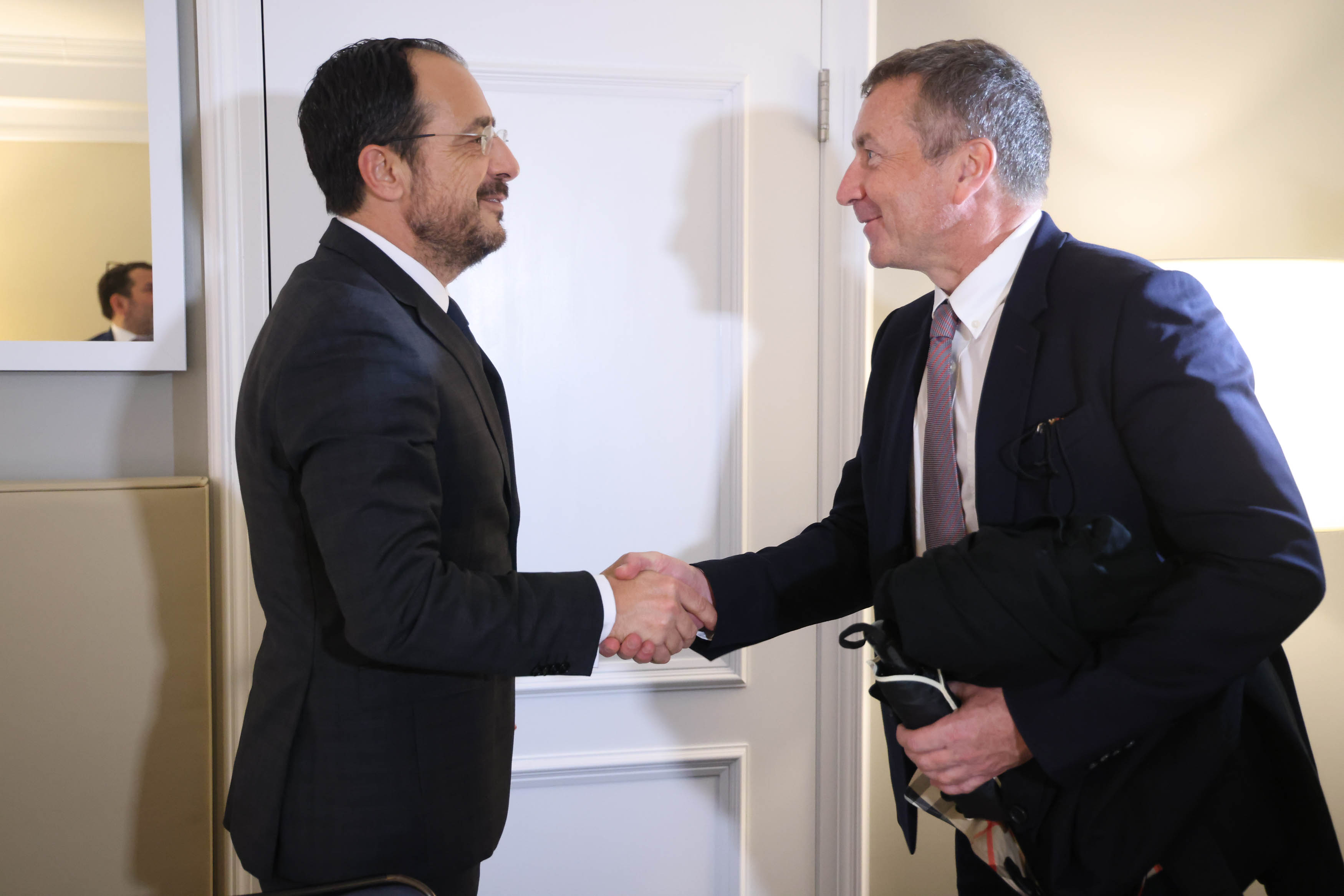The good news President Nikos Christodoulides had arranged to announce on Thursday evening after the scheduled meeting in New York with the Vice President of ExxonMobil, John Ardill, was overshadowed to an extent by reports that the European Commission had formally asked for the return of €67 million it paid for the Vasiliko gas terminal fiasco.
Although the discovery in plots Pegasus and Glaucus is the biggest so far in the Cypriot EEZ – twice the quantity found in Aphrodite and described by Energy Minister George Papanastasiou as “sizeable” – it was not exactly a cause for celebration. It suffices to say that the discovery in the Aphrodite plot was made some 14 years ago, and its commercialisation has still not materialised. Chevron hopes to send the gas to Egypt for liquefaction at some point.
Before we have any revenue from the commercialisation of our hydrocarbons, the taxpayer will be paying the bill for the corruption that marked the awarding of the contract for the Vasiliko gas terminal to a Chinese company that had never undertaken such a project. The European Commission has asked for the return of €67m it had contributed because of the irregular tenders’ procedure reported by the Audit Office.
The demand for the return of the money is just part of the problem. The European Public Prosecutor’s Office is also investigating the contract with the Chinese CPP-Metron consortium, presumably in connection with corruption. The contract for the project was signed in 2019 and it is not yet 50 per cent completed, although it is already substantially over-budget, not to mention the ongoing dispute between the government and the consortium which is at the London arbitration court and is likely to cost us tens of millions of euros. One deputy estimated that by the time it is completed the gas terminal could cost as much €900m, twice much as the original estimates.
That some deputies are speaking out now, is very important. Diko deputy Chrysis Pantelides did not mince his words speaking about the matter in the last few days. There could only be one explanation for the contract signed in 2019, said Pantelides. “Either they (individuals who agreed it) were stupid or they were corrupt,” and he was inclined to believe the latter. “This was corruption because the fact was that certain individuals took money and gave the project to the Chinese and the cost is now being paid by the Cypriot polity,” said Pantelides.
Akel leader Stefanos Stefanou said on Friday that his party would submit information to the anti-corruption authority in the hope it would undertake an independent investigation that would apportion responsibility. This would be a big mistake because the authority, apart from being slow, has no power. Whatever it discovers would then have to be forwarded to the attorney-general to decide whether there would be a criminal investigation. There is, however, more than enough evidence to justify a criminal investigation without the need for preliminary enquiries by the anti-corruption authority.
As Pantelides said, only if there were pay-offs could the decision have been taken to award the contract to a company that specialised in gas pipelines and had no experience in setting up a floating storage regasification unit, jetties and terminals, without competitive tenders. More than double the market price was paid for the FSRU Prometheas which is now docked in Malaysia, at huge monthly expense, awaiting its certification. Meanwhile, we do not know what the bill for the completion of the project would be, with foreign consultants currently carrying out what is known as a ‘gap analysis’ to establish how much more work would have to be done and how long it would take.
This is why a criminal investigation should be ordered now and the energy minister at the time, the presidents of the natural gas public company Defa and of the natural gas infrastructure company Etyfa as well as the former president of the republic, must be questioned. Nicos Anastasiades had personally ordered the awarding of the contract to the Chinese consortium, on the grounds that the gas terminal was an issue of “national importance.” At the energy ministry technocrats were aware that this was a disaster waiting to happen, but nobody said anything. Why?
Even if the people who took this decision received no bribe, they could still be prosecuted for criminal negligence. Such costly incompetence, for once, must not go unpunished.






Click here to change your cookie preferences